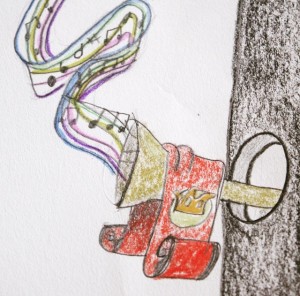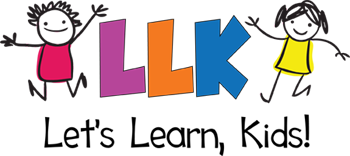 K
K
FOCUSING YOUR ATTENTION, PART 8
Attention is not merely one entity. These are the different components of attention:
- sustained attention
- divided attention
- selective attention
- processing speed
Let’s look at what we can incorporate into our lives to develop our attention capacity.
- Music training – after 15 months, structural changes occur in brain circuits used for music processing. Music is related to motor and auditory skills, so the better you get, the better motor and auditory skills you have. IQ is also increased, so it’s never too late to take up music. Whatever your age, learn and play music!
- Athletics – combine all sensory spheres and eventually lead to the development of what is referred to as muscle memory (but it is actually brain memory). Any team or solitary sport is fine. Concentrate on areas of weakness instead of mindlessly repeating imperfect movements. If you play tennis and have a weak serve, focus on that.
But to the parent who is ready to rush out and sign their preschooler up for piano lessons and soccer classes, STOP! Take a deep breath and consider words from Cory Turner, editor and reporter at NPR Ed, who shares in What Kids Need From Grown-Ups (But Aren’t Getting), Feb. 9, 2016. He explains his concern over pushing kindergarten expectations on preschool-aged children, and shares the belief with Erika Christakis, an author and lecturer at the Yale Child Study Center, that this is “a real threat to our society’s future.”
Concerning what preschool should look like, Turner says, “You mount a spirited defense of unscheduled kid time [at home]. Less shuttling to and from sports practice, dance practice, swim lessons. Be sure, you say, to give your child time to sit on the floor and stare at the ceiling if that’s what they want to do. I know a lot of parents who would find that view heretical.”
He goes on to state, “I think boredom can be a friend to the imagination. Sometimes when kids appear to be bored, actually they haven’t had enough time to engage in something. We quickly whisk it away and move them along to the next thing. And that’s when you say, ‘How can I help the child to look at this in a new way? To try something new, to be patient.’
“You’ve really kind of adultified childhood so kids really don’t have those long, uninterrupted stretches of time to engage in fantasy play. And because we’ve kind of despoiled the habitat of early childhood, a lot of times they don’t know what to do when given that time.”
So please don’t feel like you need to have your little ones signed up in every enrichment opportunity available. The purpose of this post on the benefits of music and athletics on the brain is not to inflict guilt on you, but simply inform you of ways to strengthen various functions in the brain. There are many ways to provide our kids with these opportunities. If I may make a suggestion . . . accept that we, as parents, can not offer our children solutions to every potential need that arises at the same time. We also do not have to enlist the kids in formal training in every situation.
In our family, we are currently enrolled in an educational co-op once a week for a fantastic community-based supplemental learning opportunity–Classical Conversations. As far as other extracurricular activities, we find ways to meet their needs in simple, undemanding ways. I cannot, and will not, drag all four kids from lesson to lesson around town all throughout the week. For now, their “formal” exercise, other than natural play, is using an at-home workout program. There will be seasons where they will engage in other types of sports activities, etc…, but for now, our focus is to not spread ourselves thin by shuttling them all over town. I want them to have time to explore, contemplate, and even stare at the ceiling if that’s what beckons them.
Now, let’s look at something you can do at home. Here is an exercise for your kids to develop the processing speed component of attention-
See how quickly they can shuffle a deck of cards and then break the cards into suits and put them in order. I think I’m going to try this with them. (Whoa! Mom’s gonna keep a fit brain too!)
Come back tomorrow for the wrap up of this section of attention in Optimizing Brain Fitness! Let me know if you try this exercise of shuffling and organizing cards.
See you next time!

